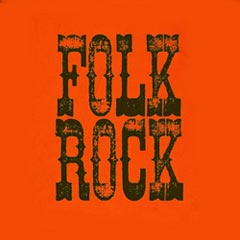2022-01-01
The Brilliance and Backlash of Paul Simon: A Look at the Critiques and Accolades
As the frontman of legendary duo Simon & Garfunkel, as well as a renowned solo artist in his own right, Paul Simon has an illustrious career with dozens of hits to his name. Despite his massive success and influence upon so many listeners around the globe, this living legend is not without some criticism - something that comes hand-in-hand with the fame he has attained. But for every critique there are ten much deserved accolades about Paul Simon’s musicianship and songwriting abilities. In this blog post, we will explore both sides—the good and bad—and discuss why neither should be taken lightly or ignored in regards to appreciating this celebrated music icon.
Few musicians can claim to have made the impact on popular culture that Paul Simon has. With his groundbreaking work as one half of Simon & Garfunkel, and a solo career filled with hits, awards, and critical acclaim, Simon is a true music icon. And with such towering success often comes a fair amount of criticism. In this blog post, we’ll delve deep into both sides of the coin, examining the critiques and accolades of Paul Simon’s work. But one thing is for certain, Simon remains one of the most brilliant and singular voices in popular music.
On one hand, Paul Simon has often been criticized for appropriating music from various cultures and regions, without giving proper credit. The song Graceland is the prime example. Simon travelled to South Africa in the mid-80s and fell in love with the sound of the Township Jive and then recorded his Grammy-winning record with the backing of the South African musicians. Critics accused him of cultural appropriation—using another culture's music for profit—all while ignoring the real troubles of apartheid in the region. However, many others argue that Simon did more to bring attention to the plight of South Africa than most musicians at the time.
Another critique that Simon received following his massively successful album 'Graceland' was that it was too slickly produced, and some found parts of it too pop-oriented. Simon’s response to that was that this was exactly what he was going for. “I was aiming for the mass audience with 'Graceland.': people who come from Kansas or Cleveland or someplace who listen to the radio, who listen to music in their car,” he said. Indeed, songs like “You Can Call Me Al” and “Diamonds On the Soles of Her Shoes” may have sounded more produced and slick than his earlier work, but they were still packed with the same incredible melodies and chord progressions.
On the other hand, Paul Simon has received numerous accolades over the years for his brilliant songwriting abilities. Simon's songwriting is characterized by vivid narratives and memorable melodies. Who can forget the opening lines of The Sound of Silence, which are still relevant today – “Hello darkness, my old friend / I've come to talk with you again.” These words and the melody they're sung with are a testament to Simon's ability to evoke emotion through music. He's also lauded for combining genres and styles in novel ways. Few songwriters can blend folk, rock, and pop music quite like Simon, with each song being a journey in and of itself.
Similarly, Simon has been given praise for his solo work, including albums like “Graceland” and his well-received album “Still Crazy After All These Years”. These albums found Simon pushing himself to explore new sounds, and new ways of telling stories through song. Albums like Graceland featured unique arrangements of different music genres, while songs like 50 Ways To Leave Your Lover had catchy rhythms with memorable bridges. Simon's music was personable and relatable, despite the fact that many of his songs were about unfamiliar subjects or characters.
In conclusion, there is no denying Paul Simon’s undeniable contribution to the music industry. With his unmatched talent and ability to create relatable music, he has earned his status as one of the greatest songwriters of all time. Although some have critiques of his work over the years, his brilliance has far outweighed any criticism directed his way. Paul Simon stands out as someone who has been able to constantly evolve and adapt his music to continue to engage music lovers across generations. So, the next time you hear one of his songs, take a moment to appreciate the nuanced melodies and meaningful lyrics that have become such an important part of our cultural fabric.
Few musicians can claim to have made the impact on popular culture that Paul Simon has. With his groundbreaking work as one half of Simon & Garfunkel, and a solo career filled with hits, awards, and critical acclaim, Simon is a true music icon. And with such towering success often comes a fair amount of criticism. In this blog post, we’ll delve deep into both sides of the coin, examining the critiques and accolades of Paul Simon’s work. But one thing is for certain, Simon remains one of the most brilliant and singular voices in popular music.
On one hand, Paul Simon has often been criticized for appropriating music from various cultures and regions, without giving proper credit. The song Graceland is the prime example. Simon travelled to South Africa in the mid-80s and fell in love with the sound of the Township Jive and then recorded his Grammy-winning record with the backing of the South African musicians. Critics accused him of cultural appropriation—using another culture's music for profit—all while ignoring the real troubles of apartheid in the region. However, many others argue that Simon did more to bring attention to the plight of South Africa than most musicians at the time.
Another critique that Simon received following his massively successful album 'Graceland' was that it was too slickly produced, and some found parts of it too pop-oriented. Simon’s response to that was that this was exactly what he was going for. “I was aiming for the mass audience with 'Graceland.': people who come from Kansas or Cleveland or someplace who listen to the radio, who listen to music in their car,” he said. Indeed, songs like “You Can Call Me Al” and “Diamonds On the Soles of Her Shoes” may have sounded more produced and slick than his earlier work, but they were still packed with the same incredible melodies and chord progressions.
On the other hand, Paul Simon has received numerous accolades over the years for his brilliant songwriting abilities. Simon's songwriting is characterized by vivid narratives and memorable melodies. Who can forget the opening lines of The Sound of Silence, which are still relevant today – “Hello darkness, my old friend / I've come to talk with you again.” These words and the melody they're sung with are a testament to Simon's ability to evoke emotion through music. He's also lauded for combining genres and styles in novel ways. Few songwriters can blend folk, rock, and pop music quite like Simon, with each song being a journey in and of itself.
Similarly, Simon has been given praise for his solo work, including albums like “Graceland” and his well-received album “Still Crazy After All These Years”. These albums found Simon pushing himself to explore new sounds, and new ways of telling stories through song. Albums like Graceland featured unique arrangements of different music genres, while songs like 50 Ways To Leave Your Lover had catchy rhythms with memorable bridges. Simon's music was personable and relatable, despite the fact that many of his songs were about unfamiliar subjects or characters.
In conclusion, there is no denying Paul Simon’s undeniable contribution to the music industry. With his unmatched talent and ability to create relatable music, he has earned his status as one of the greatest songwriters of all time. Although some have critiques of his work over the years, his brilliance has far outweighed any criticism directed his way. Paul Simon stands out as someone who has been able to constantly evolve and adapt his music to continue to engage music lovers across generations. So, the next time you hear one of his songs, take a moment to appreciate the nuanced melodies and meaningful lyrics that have become such an important part of our cultural fabric.
Tag: Paul Simon, music artist, best songs, artist career
2022-11-01
The Journey of Fre: A Musical Biography
Music is an integral part of our lives, and for many, it's the one thing that brings joy and excitement. One artist who has been creating waves in the music industry is Fre...read more
2022-11-01
The Unstoppable Rise of Destroy Boys: Musical Biography, Famous Albums, and Songs
In the world of music, there are some artists who truly stand out for their unique style, excellent performances, and incredible talent. Destroy Boys is definitely one of those artists...read more
2022-01-01
Analyzing Nirvana: The Good and the Bad
Nirvana has been one of the most iconic and influential bands in rock music – but it's not without its critics. From disgruntled grunge-purists to those who cite a lack of diversity in their albums, there are plenty of disagreements as to why Nirvana was so successful...read more
2022-01-01
Pnau: A Controversial Love Letter to the Australian Electronic Music Duo
Since their beginnings in the early 2000s, Australian dance music duo Pnau have been at the forefront of electronic music. Their sound has been constantly evolving and continuously breaking boundaries with a unique blend of indie, pop and electronica...read more
2022-11-01
Unveiling the Musical Biography of Araabmuzik
Music is the food to the soul. It ignites emotions and creates an atmosphere that engulfs the listener...read more
SUGGESTED PLAYLISTS








